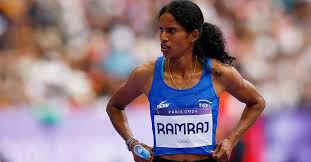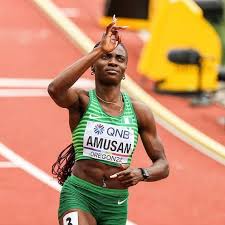Skip to content
In a landmark ruling that shocked the darts community, professional player Luke Jenkins has been handed an 11-year ban from all forms of competitive darts after being found guilty of match-fixing.

This unprecedented penalty not only highlights the growing scrutiny around the integrity of professional sports but also sends a strong message about the consequences of corrupt behavior within competitive environments.
The case has shaken the darts world, raising questions about the measures in place to prevent match-fixing and the long-term impact of such scandals on the sport’s reputation.
The Incident and Investigation.

The controversy surrounding Luke Jenkins began earlier this year when suspicions were raised regarding the outcome of certain matches he participated in.
Jenkins, a promising young talent on the darts circuit, had previously shown potential, but his recent performances had been underwhelming, leading to speculation about his level of commitment during certain matches.

These concerns led the Darts Regulatory Authority (DRA) to launch an official investigation into his activities.
Through a combination of monitoring betting patterns, reviewing match footage, and conducting interviews with other players, the investigation uncovered a troubling series of events.
Jenkins had reportedly manipulated the results of several matches, either by deliberately underperforming or by influencing the course of games in exchange for financial gain from illegal betting syndicates.
The findings were damning, and the DRA decided to charge Jenkins with violating the sport’s anti-corruption rules.
The Ruling and Penalty
Following a thorough disciplinary hearing, the DRA concluded that Jenkins’ actions were not only in violation of the sport’s ethical standards but also represented a significant breach of trust in the competitive nature of darts.
As a result, Jenkins was banned from all professional darts competitions for an unprecedented 11 years.
This lengthy ban reflects the seriousness with which the DRA views the offense, particularly given the growing concern over the influence of match-fixing in sports worldwide.
Jenkins’ suspension is one of the longest in the history of the sport, and it sends a clear message that match-fixing will not be tolerated in darts.
In addition to the ban, Jenkins was also fined and ordered to return any prize money earned from the affected matches.
The severity of the penalty underscores the commitment of the DRA to maintaining the integrity of the sport and ensuring that players adhere to the highest ethical standards.
The Impact on the Darts Community
The ruling has had far-reaching consequences not only for Jenkins but also for the wider darts community.
The sport of darts has enjoyed a surge in popularity over the past decade, with increasing viewership and sponsorship deals elevating its profile on the global stage.
However, incidents like match-fixing undermine the credibility of the sport and cast a shadow over its growing success.
Players, coaches, and officials alike have expressed concern about the implications of the case.
The DRA’s swift and decisive action may serve as a deterrent for other players who might consider engaging in similar behavior, but it also raises questions about the effectiveness of current safeguards.
Many have called for more stringent measures to be put in place, such as more frequent integrity checks, better education for players on the risks of match-fixing, and increased transparency in the sport’s betting activities.
There is also a sense of disillusionment among fans, many of whom have invested years of loyalty and passion in the sport.
Darts is often seen as a game of skill, where the outcome is determined solely by the ability and performance of the players.
When match-fixing rears its ugly head, it threatens to tarnish the fundamental principles that make the sport so appealing to its followers.
The Jenkins case has sparked a wider conversation about how to protect the integrity of darts and other sports from corruption.
The Role of Betting in Match-Fixing
One of the key factors in the Jenkins case was his alleged involvement in illegal betting rings.
Betting on sports, including darts, has become increasingly popular, and with it comes the potential for corruption.
While the majority of betting remains above board, the rise of online gambling and unregulated markets has made it easier for unscrupulous individuals to exploit vulnerable players.
In Jenkins’ case, it is believed that he was approached by individuals seeking to manipulate the results of his matches, with the promise of financial rewards in exchange for his compliance.
The ease with which these illegal betting syndicates can operate and the temptation of quick financial gain can lead to situations where players, particularly those struggling with their careers, may be more susceptible to such offers.
To combat the growing issue of match-fixing in darts and other sports, experts have called for tighter regulations surrounding betting, including better monitoring of suspicious betting patterns and stronger collaboration between sports organizations, law enforcement, and betting companies.
Transparency in betting markets and stricter penalties for those found guilty of match-fixing are essential to safeguarding the integrity of the sport.
Jenkins’ Future and Redemption
Luke Jenkins’ career is now left in tatters, with his 11-year ban leaving him unable to compete at the highest level for more than a decade.
While Jenkins has yet to publicly comment on the ruling, many within the sport are speculating about his future.
Some argue that this ban could serve as a turning point for the player, allowing him to reflect on his actions and possibly make a return to the sport in the distant future, should he choose to seek redemption.
However, the road to redemption will not be easy.
The trust that has been broken between Jenkins and the darts community may take years to rebuild, if ever.
His reputation will forever be tarnished by the scandal, and it remains to be seen if he can ever regain his standing in the sport.
Luke Jenkins’ 11-year ban for match-fixing is a significant moment in the history of professional darts.
It serves as a stark reminder of the dangers of corruption in sport and highlights the importance of maintaining the integrity of competitive play.
While the penalty is harsh, it is necessary to ensure that players, fans, and officials alike can have confidence in the fairness of the game.
Moving forward, the darts community will undoubtedly face increased scrutiny, but with stronger safeguards and a collective commitment to upholding the values of the sport, it is hoped that similar scandals can be avoided in the future.







